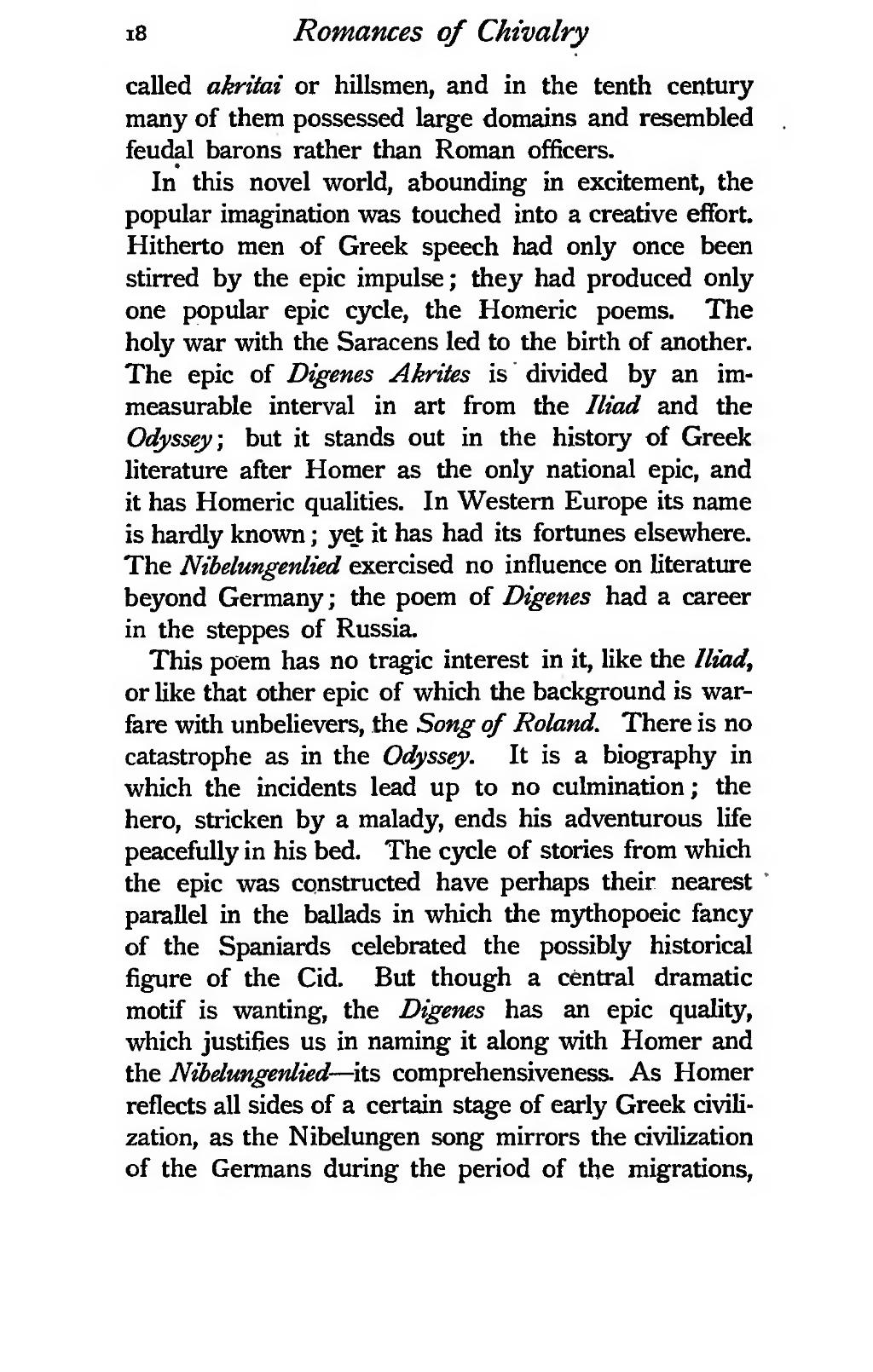called akritai or hillsmen, and in the tenth century many of them possessed large domains and resembled feudal barons rather than Roman officers.
In this novel world, abounding in excitement, the popular imagination was touched into a creative effort. Hitherto men of Greek speech had only once been stirred by the epic impulse; they had produced only one popular epic cycle, the Homeric poems. The holy war with the Saracens led to the birth of another. The epic of Digenes Akrites is divided by an immeasurable interval in art from the Iliad and the Odyssey; but it stands out in the history of Greek literature after Homer as the only national epic, and it has Homeric qualities. In Western Europe its name is hardly known; yet it has had its fortunes elsewhere. The Nibelungenlied exercised no influence on literature beyond Germany; the poem of Digenes had a career in the steppes of Russia.
This poem has no tragic interest in it, like the Iliad, or like that other epic of which the background is warfare with unbelievers, the Song of Roland. There is no catastrophe as in the Odyssey. It is a biography in which the incidents lead up to no culmination; the hero, stricken by a malady, ends his adventurous life peacefully in his bed. The cycle of stories from which the epic was constructed have perhaps their nearest parallel in the ballads in which the mythopoeic fancy of the Spaniards celebrated the possibly historical figure of the Cid. But though a central dramatic motif is wanting, the Digenes has an epic quality, which justifies us in naming it along with Homer and the Nibelungenlied—its comprehensiveness. As Homer reflects all sides of a certain stage of early Greek civilization, as the Nibelungen song mirrors the civilization of the Germans during the period of the migrations,
